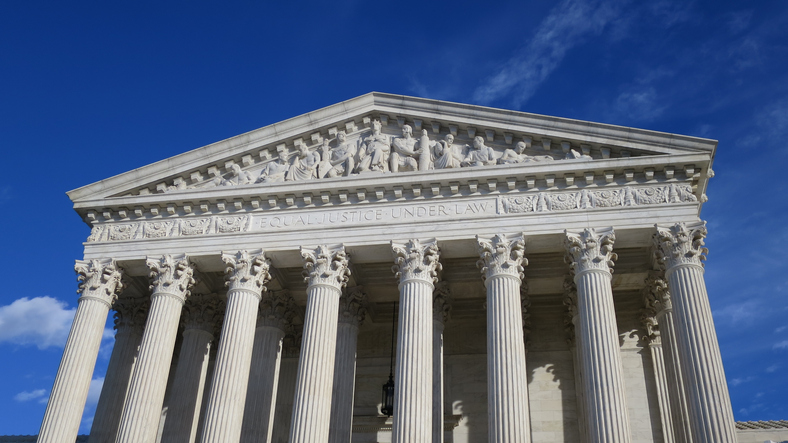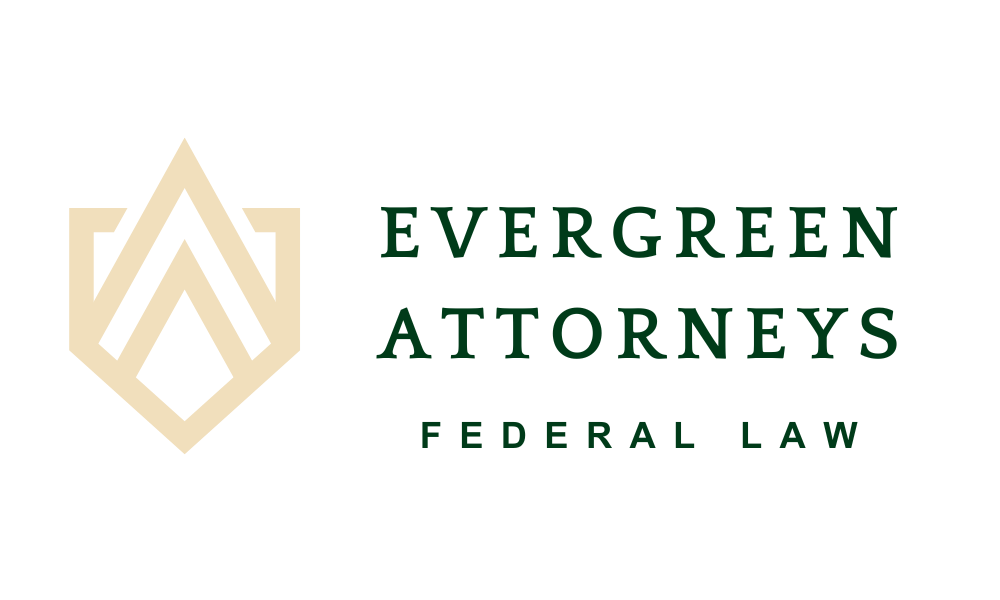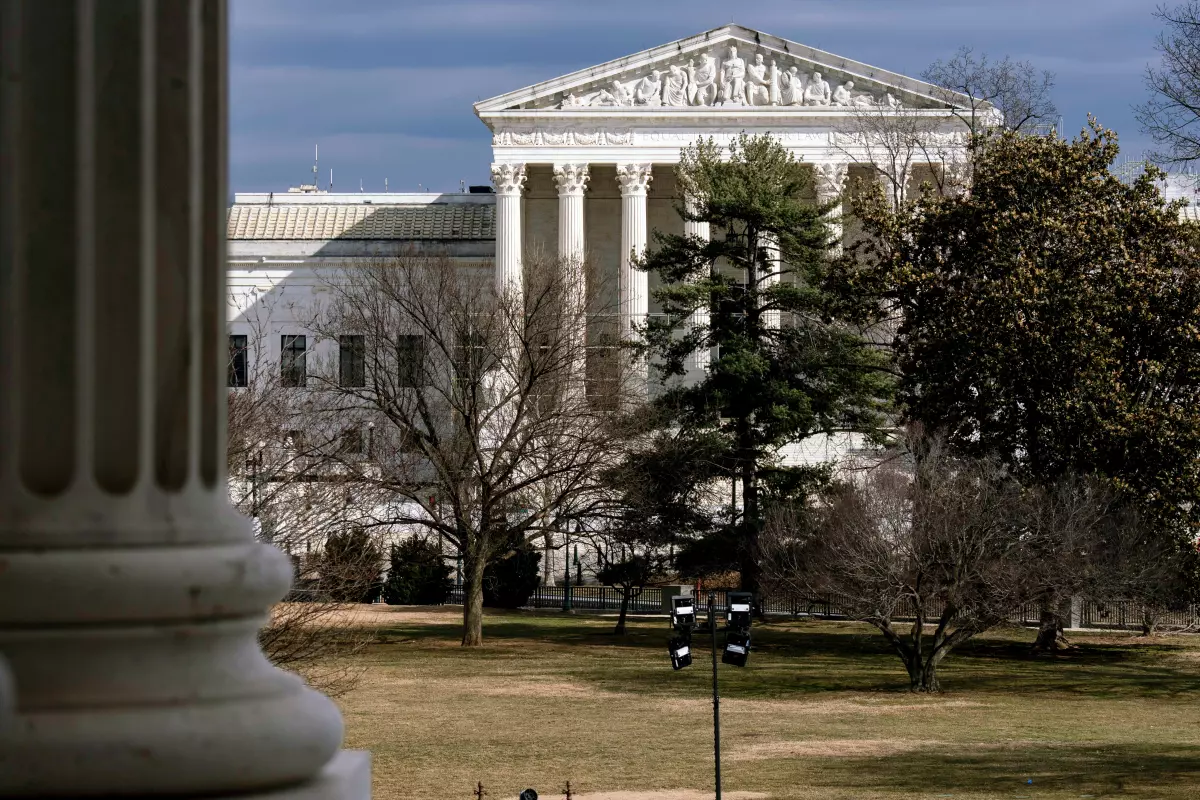Share
Share

The Fourth Circuit Court of Appeals recently issued a published opinion reversing the district court’s denial of a 28 U.S.C. § 2255 motion based on ineffective assistance of counsel in United States v. Brown, No. 22-7105 (4th Cir. May 20, 2025). A full copy of the opinion can be found here.
We have previously written on what is a 2255 motion, how to get an evidentiary hearing, and how a 2255 motion is often considered the last line of defense for federal criminal defendants. Want to learn what a 2255 motion is? Need information about the basics on a federal habeas corpus lawyer filing a motion to vacate under 28 U.S.C. Section 2255? Start with those links. This article is a not a primer, but an example of a recent winning motion from the Fourth Circuit Court of Appeals.
Read on for details on this case and the law that resulted in section 2255 relief based on ineffective assistance of counsel.
United States v. Brown, No. 22-7105
Attorney’s Deficient Advice on Sentencing Exposure Results in Brown Rejecting a Favorable Plea Agreement
In 2016, Brown was indicted in the U.S. District Court for the Eastern District of North Carolina on four counts of possession with intent to distribute cocaine and one count of being a felon in possession of a firearm. Brown faced a statutory maximum of 20 years on each of the four drug counts, and up to 10 years on the felon in possession offense. In total, Brown’s maximum sentencing exposure under statute was 90 years imprisonment.
Brown was offered a plea agreement to the gun charge, 18 U.S.C. § 922(g), which limited Brown’s sentencing exposure to 10 years. After a change in counsel, Brown’s new attorney told him that “it did not matter whether he accepted the plea agreement because the guideline range would be the same.” Believing in counsel’s advice, Brown rejected the plea offer.
Brown was later arraigned and the district court advised him that he faced up to 20 years imprisonment on each of the four drug charges. Brown and his new counsel had a discussion off the record. After conferring with his attorney, Brown told the court he understood the penalties. Brown entered an open guilty plea to all five counts.
In September 2017, the district court sentenced Brown to 210 months in prison on all counts, an upward departure from the advisory guidelines range of 87 to 108 months. Brown appealed his conviction to the Fourth Circuit, which was affirmed in an unpublished opinion.
Brown Files a 2255 Motion Claiming Ineffective Assistance of Counsel
After Brown’ judgment became final, he filed a motion to vacate sentence pursuant to 28 U.S.C. § 2255 alleging his counsel was ineffective by failing to properly advise Brown to accept a favorable plea offer. In its response, the government conceded that Brown had demonstrated enough to establish deficient performance and requested an evidentiary hearing to determine whether Brown was prejudiced by counsel’s advice.
In June 2022, the court held an evidentiary hearing. Brown testified at the hearing that he first learned that his second attorney provided him incorrect legal advice after he was sentenced. He further testified that he “would have taken the plea that the Government offered” had he been aware of the fact that he was facing a statutory maximum sentence of 90 years. He believed that, based on his attorney’s advice, his maximum sentence when pleading to all five counts was no more than 10 years.
In his testimony, Brown also addressed the Rule 11 plea colloquy where the court advised Brown of the maximum penalties. Brown stated that during the off-the-record discussions with his attorney during the hearing, counsel told him not to worry about that and to just focus on the Guidelines that they previously discussed.
Brown’s second attorney testified that he had no recollection of what he and Brown discussed during the hearing and had no specific recollection of the hearing in general.
The district court denied Brown’s 2255 motion. The court concluded that Brown had not presented contemporaneous evidence to support his claim that he would have accepted the plea agreement but for counsel’s errors, and that Brown had failed to prove by a preponderance of the evidence that he was prejudiced by counsel’s failure to properly advise him about the correct sentencing exposure.
Brown Appeals the Denial of his 2255 Motion to the Fourth Circuit
Brown appealed the denial of his 2255 motion to the United States Court of Appeals for the Fourth Circuit. Applying de novo review, the Fourth Circuit held that the district court erred in denying Brown’s 2255 motion. Specifically, the court of appeals found that the district court’s erred in finding Lee v. United States, 582 U.S. 357 (2017) applied in the context of rejected plea deals and that Brown was required to present “contemporaneous evidence” to support his claim. In addition, the court found that Brown demonstrated a reasonable probability that, but for counsel’s erroneous advice, Brown would have accepted the plea offer.
Lee Does Not Apply to Rejected Plea Deal Claims for Ineffective Assistance of Counsel
The district court relied heavily on the Supreme Court’s holding in Lee to deny Brown § 2255 relief. In Lee, the defendant alleged he had accepted a guilty plea based on counsel’s misadvice on deportation consequences. In addressing the claim, the Supreme Court wrote “[c]ourts should not upset a plea solely because of post hoc assertions from a defendant about how he would have pleaded but for his attorney’s deficiencies” and that courts “should look to contemporaneous evidence to substantiate a defendant’s expressed preferences.”
The Fourth Circuit noted that Lee was distinguishable from Brown’s case because Lee involved an individual who had accepted a plea offer, while Brown’s claim revolved around the rejection of a plea bargain. Accordingly, the Fourth Circuit held that the district court erred in finding Lee applied in the context of rejected pleas and Brown was required to present “contemporaneous evidence” to support his claim.
Strickland and Frye Set the Framework for Brown’s 2255 Claim
The Fourth Circuit rejected that Lee controlled how Brown must demonstrate prejudice to establish his ineffective assistance of counsel claim. In doing so, the Fourth Circuit relied on well-established Supreme Court precedent.
Strickland v. Washington is the seminal case for ineffective assistance of counsel (IAC) claims. Strickland set forth the two-prong test for IAC claims: (1) counsel performed deficiently, and (2) the defendant was prejudiced as a result–meaning that there is a “reasonable probability that, but for counsel’s unprofessional errors, the result of the proceedings would have been different.”
In Missouri v. Frye, the Supreme Court addressed the prejudice prong of Strickland in a case involving a rejected plea offer. There, the Court held that prejudice in this context is shown by establishing a “reasonable probability” that (1) the defendant “would have accepted the earlier plea offer had [he] been afforded effective assistance of counsel; (2) the “plea would have been entered without the prosecution canceling it or the trial court refusing to accept it, if they had the authority to exercise that discretion under state law”; and (3) “the end result of the criminal process would have been more favorable by reason of a plea to a lesser charge or sentence of less prison time.”
The Fourth Circuit held that Brown established an IAC claim against his attorney under Strickland. Neither party disputed that counsel performed deficiently. Thus, the only question was whether Brown could meet the prejudice prong of Strickland.
Under Frye’s test for prejudice in a rejected plea context, the Fourth Circuit concluded that Brown met all three factors. Brown testified that he would have taken the initial plea had he been properly advised on the maximum sentencing exposure; the government did not dispute that the plea would have been entered had Brown pled guilty; and Brown ultimately pled guilty to more serious charges and received a sentence well over the statutory maximum of 10 years capped by the initial plea agreement.
2255 Relief Granted based on Ineffective Assistance of Counsel
The Fourth Circuit found that Brown successfully established both deficient performance and prejudice under the tests set forth in Strickland and Frye. Accordingly, the Fourth Circuit reversed the district court’s denial of Brown’s 2255 motion–meaning the motion was granted.
In a situation where a defendant is deprived of a favorable plea offer due to counsel’s ineffectiveness, the proper remedy is to vacate the conviction and sentence and require the government to re-offer the original plea agreement. That is what the Fourth Circuit did here. Brown’s case was remanded to the district court and the government must now re-offer the favorable plea agreement Brown initially rejected due to ineffective assistance of counsel.
Key Takeaways from Brown
Nobody is perfect. This includes lawyers and judges. Brown is a prime example of how an attorney’s ineffectiveness and a court’s misinterpretation of caselaw can result in a defendant receiving significantly more prison time.
Brown’s case demonstrates why it is so important to have effective and competent counsel when facing criminal charges. Although the Fourth Circuit ultimately granted Brown relief, it took around 8 years for Brown to finally receive justice for his attorney’s incompetence and the court’s errors.
The lawyers at Evergreen Attorneys know how important pretrial, sentencing, and post-conviction representation is to fighting injustice. Whether you are facing federal charges or have already been sentenced, contact Evergreen Attorneys today for a free consultation. We can be reached at (303) 948-1489 or by email at [email protected].
David Boyer
It was David’s passion for the law and helping others that led him to becoming an attorney. He particularly enjoys appellate and post-conviction work.
David is proud to offer representation nationwide from his office in Plano, Texas.
STAY IN THE LOOP
Subscribe to our free newsletter.
By David G. Savage, Oct. 20, [...]









